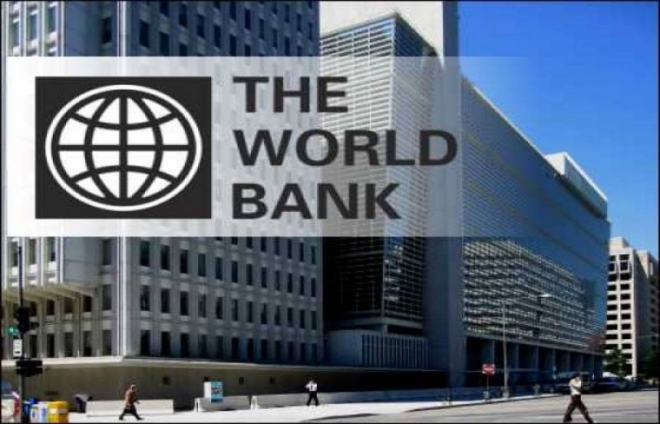
Audio By Carbonatix
This generation of students now risks losing $17 trillion in lifetime earnings in present value, or about 14% of today’s global Gross Domestic Product, as a result of Covid-19 pandemic-related school closures, according to a new report published today by the World Bank, UNESCO, and UNICEF.
The new projection reveals that the impact is more severe than previously thought, and far exceeds the $10 trillion estimates released in 2020.
In addition, The State of the Global Education Crisis: A Path to Recovery report shows that in low- and middle-income countries, the share of children living in Learning Poverty – already 53 percent before the pandemic – could potentially reach 70 percent given the long school closures and the ineffectiveness of remote learning to ensure full learning continuity during school closures.
“The COVID-19 crisis brought education systems across the world to a halt,” said Jaime Saavedra, World Bank Global Director for Education. “Now, 21 months later, schools remain closed for millions of children, and others may never return to school. The loss of learning that many children are experiencing is morally unacceptable. And the potential increase of Learning Poverty might have a devastating impact on future productivity, earnings, and well-being for this generation of children and youth, their families, and the world’s economies.”
Simulations estimating that school closures resulted in significant learning losses are now being corroborated by real data. For example, regional evidence from Brazil, Pakistan, rural India, South Africa, and Mexico, among others, show substantial losses in math and reading.
Analysis shows that in some countries, on average, learning losses are roughly proportional to the length of the closures. However, there was great heterogeneity across countries and by subject, students’ socioeconomic status, gender, and grade level.
For example, results from two states in Mexico show significant learning losses in reading and in math for students aged 10-15. The estimated learning losses were greater in math than reading, and affected younger learners, students from low-income backgrounds, as well as girls disproportionately.
Barring a few exceptions, the general trends from emerging evidence around the world align with the findings from Mexico, suggesting that the crisis has exacerbated inequities in education as children from low-income households, children with disabilities, and girls were less likely to access remote learning than their peers.
Also, younger students had less access to remote learning and were more affected by learning loss than older students, especially among pre-school age children in pivotal learning and development stages.
“The COVID-19 pandemic shut down schools across the world, disrupting education for 1.6 billion students at its peak, and exacerbated the gender divide. In some countries, we’re seeing greater learning losses among girls and an increase in their risk of facing child labor, gender-based violence, early marriage, and pregnancy. To stem the scars on this generation, we must reopen schools and keep them open, target outreach to return learners to school, and accelerate learning recovery," said UNICEF Director of Education Robert Jenkins.
The report highlights that, to date, less than 3% of governments’ stimulus packages have been allocated to education. Much more funding will be needed for immediate learning recovery.
The report also notes that while nearly every country in the world offered remote learning opportunities for students, the quality and reach of such initiatives differed – in most cases, they offered, at best, a rather partial substitute for in-person instruction.
More than 200 million learners live in low- and lower middle-income countries that are unprepared to deploy remote learning during emergency school closures.
Reopening schools must remain a top and urgent priority globally to stem and reverse learning losses, the report added.
Latest Stories
-
Police arrest suspect for unlawful possession and attempted sale of firearm
1 hour -
3 arrested in connection with Tema robberies
1 hour -
Your mouth on weed is nothing to smile about
1 hour -
25% university fees hike, what was the plan all along? — Kristy Sakyi queries
3 hours -
Some OMCs reduce fuel prices; petrol going for GH¢10.86, diesel GH¢11.96
3 hours -
Trump says health is ‘perfect’ amid ageing concerns
4 hours -
China’s BYD set to overtake Tesla as world’s top EV seller
4 hours -
Joy FM’s iconic 90’s Jam returns tonight: Bigger, better, and packed with nostalgia
4 hours -
Uproar as UG fees skyrocket by over 25% for 2025/2026 academic year
6 hours -
Japan PM joins fight for more female toilets in parliament
6 hours -
Ga Mantse declares war on fishing industry child labour
7 hours -
Adom FM’s ‘Strictly Highlife’ lights up La Palm with rhythm and nostalgia in unforgettable experience
8 hours -
OMCs slash fuel prices as cedi gains
9 hours -
Around 40 dead in Swiss ski resort bar fire, police say
10 hours -
AFCON 2025: Aubameyang and Nsue make history among oldest goalscorers
11 hours

